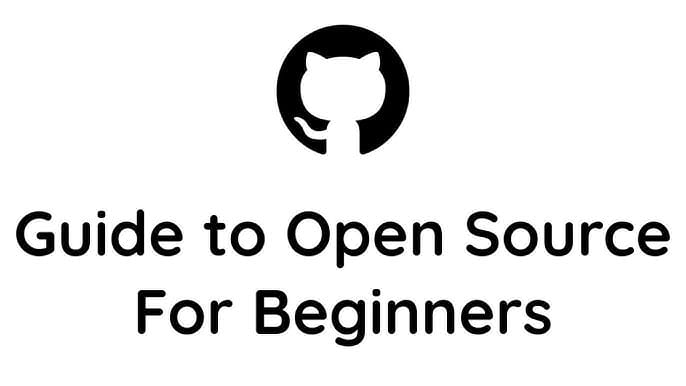If you’ve touched Linux, Python, WordPress, VLC, Blender or PostgreSQL, you’ve already used FOSS—free and open-source software. Strip away the jargon and it’s simple: FOSS lets you use, study, modify and share the code. That freedom is more than a nice idea. It’s a practical way to build reliable software without surrendering control to a single vendor.
So what is FOSS, really? Think of it as a transparent stack where the source code is visible, auditable, and portable. In a world of black-box platforms and recurring license fees, that one shift changes the game. You’re not stuck with a proprietary database you can’t inspect or export from. You’re not waiting on a vendor roadmap for a feature you needed last quarter. With open standards and open formats, switching tools isn’t a multi-year saga—it’s an engineering decision.
This is exactly why a community like WBFOSS matters in West Bengal. The state has a deep pool of students, academics, IT services firms, and founders. Many are already building with open stacks—Linux on the servers, Nginx at the edge, Node or Python in the middle, Postgres for data, Docker for packaging, and CI/CD for shipping. They’re not doing it because it’s trendy. They’re doing it because open source lowers total cost of ownership, reduces vendor lock-in, and makes security a process you can actually observe.
Security is where FOSS quietly shines. When code is visible, bugs don’t hide behind NDAs. You can review it yourself or hire someone local to audit it. You can run SBOMs, scan dependencies, and patch on your schedule. That’s a very different posture from trusting a sealed product and hoping for the best. For public institutions, startups handling user data, or anyone building on open APIs and digital public goods, this level of transparency builds real trust.
Cost is the obvious headline. Licenses add up, especially at scale. But the real savings show up later—when your teams invest that budget into skills. Training a college lab to run Linux and Jupyter, or a small company to operate Postgres confidently, compounds over years. People learn Git, code review, DevSecOps basics, containerization, and incident response. That talent stays in the ecosystem. Students publish a first pull request instead of just another classroom assignment. SMEs become more independent. The region levels up.
There’s also the sovereignty angle. “Digital sovereignty” isn’t a buzzword when you can’t export your own data. Open formats and open standards keep you mobile. If a vendor sunsets a product or changes terms, you don’t rewrite your future. You migrate. In government and civic tech, this freedom matters even more: open data portals, localized interfaces, audit trails, and long-term archiving all benefit from software that can outlive any single company.
What about quality and speed? Open projects move fast because they’re built in the open. Bugs are logged publicly. Roadmaps are debated in issues, not in sales decks. If a feature matters to you, you contribute or sponsor it. Forks aren’t threats; they’re pressure valves that keep innovation flowing. That’s why modern AI frameworks, cloud tooling, and developer platforms skew open—collaboration beats opacity.
For West Bengal specifically, the opportunity is clear:
- Education: Colleges can switch labs to Linux, Python, R, LaTeX and PostgreSQL without waiting for budget cycles. Students can learn with the same tools used in industry and publish small fixes upstream.
- Startups & SMEs: A Bengal-friendly stack—Linux + Nginx + Node/Python + Postgres—gets you to market fast. Add Docker for packaging, CI/CD for repeatable releases, and observability when you actually need it.
- Government & Civic Tech: Open standards, open data, and auditable code make e-governance systems more transparent and resilient. Local teams can maintain them without expensive lock-ins.
- Language & Culture: Bengali fonts, OCR, speech models and NLP datasets thrive under open licenses. The community can iterate on accessibility, translation, and content quality without asking permission.
Licensing is often what scares newcomers. It doesn’t have to. Permissive licenses like MIT, BSD and Apache-2.0 are business-friendly and easy to adopt. Copyleft options like GPL or AGPL ensure improvements remain open when redistributed. For content and datasets, CC-BY and ODbL keep reuse clear. The rule of thumb is simple: choose a license that matches how you want others to use your work—and document that choice.
How do you start? Don’t boil the ocean. Replace one proprietary tool where the risk is low. Standardize on an LTS Linux distribution. Keep dependencies tidy. Patch often. Run basic dependency scans. Write a short migration note so the next team can repeat what worked. And when you hit a snag, ask upstream, file a bug, or contribute a doc fix. Small contributions carry farther than you think.
This is where WBFOSS slots in. It’s a community hub—meetups, hands-on workshops, mentorship for first-time contributors, and local projects that matter (Bengali NLP packs, school lab images, civic platforms, open datasets). It’s also a bridge between academia, industry and government, so adoption isn’t just a campus hobby or a single department’s experiment. The goal is simple: make open-source the default choice in West Bengal because it’s cheaper, safer, and better for talent.
Open source isn’t anti-business. It’s pro-control. It’s how you keep your options open, keep your costs sane, and keep your users’ trust. If you’re building in Bengal today, FOSS isn’t a statement of ideology. It’s a strategy.


